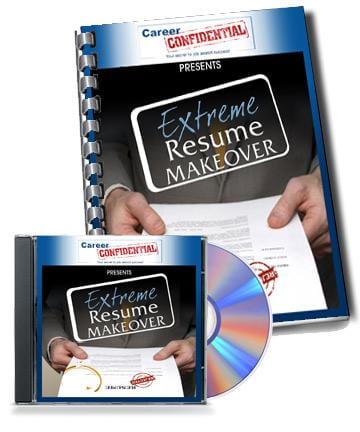 Your resume is the foundation of your job search. If you don’t get it right, you won’t move forward—but it is all too easy to make a mistake with this critical document.
Your resume is the foundation of your job search. If you don’t get it right, you won’t move forward—but it is all too easy to make a mistake with this critical document.
What should you never include on your resume?
Mistake #1 – A 3rd Page (or 4th page)
This can be a big issue if you have 20+ years of experience. Naturally, you want to show how much you know, how much experience you have, and how valuable you are.
However, hiring managers (employers) don’t like seeing extra-long resumes. They only take a few seconds to glance over a resume anyway, and they want to take it in quickly. If you’ve given them too many pages, chances are they won’t look at them.
Here’s the rule: No resume should be more than 2 pages unless you have publications or (possibly) if you are at the C-level in your career (CEO, CFO, COO, etc.).
If you do have 20+ years of experience, you have an advantage here, because you can edit your resume to show the most impressive accomplishments of your career. You’ll have 2 pages of ‘wow.’
Mistake #2 – Paragraphs
Again, it’s understandable that you want to include as much as possible on your resume—which may tempt you to write out wordy paragraphs.
The problem with paragraphs is that they get skimmed by busy hiring managers, who then miss information you need them to have. The better way to make sure they know what you need them to know is to put your accomplishments into bullet points.
Bullet points:
- Put your job history into bite-sized bits of easily-consumed information.
- Put white space around your accomplishments that highlight them.
- Make your resume more effective.
Mistake #3 – “Responsible for…”
Never start your job history with ‘responsible for…’ and then include a list of your job responsibilities or duties. You could have been responsible for a lot of things but not done any of them well, right?
Instead, use action verbs that describe things you accomplished. For example:
- Led a 5-person team that achieved X
- Managed 3 computer repair teams
- Achieved 99% customer service satisfaction ratings
These kinds of descriptions make a much bigger impact on hiring managers and are more likely to get the interview.
You’ll notice that these points all also have quantification (numbers, dollars, and percentages). Quantification is one of the best, most effective improvements you can make to your resume. (See How to Write a Resume that POPS!)
Mistake #4 – Typos
It’s amazing how many job seekers send out resumes with typos or spelling errors. This will demolish your chances of getting the interview. The thinking is that if you don’t care about the details on something as important as your resume, you won’t care about the details when you get the job.
Don’t rely on spell check to catch everything—it doesn’t. Instead, get a sharp-eyed friend to look over it for errors, and go over it yourself a few times before you hit ‘send.’
Mistake #5 – References
Employers know that you’ll have a list of references ready if they ask you. So, don’t include your names and don’t include ‘References Upon Request.’
These days, your resume needs to be more than just a job history. It needs to be a marketing document that sells you to potential employers and compels them to want to speak with you further.
This can be easier said than done, so I’ve put together a perfect resume template along with video coaching on how to write the perfect, interview-generating resume for you:
My kit makes a complicated, stressful task super-easy. I’ll even review it for you when you’re done so you know it will get you more interviews.
Find out more about my resume kit here.
See what others have said about using my Extreme Resume Makeover Kit.
